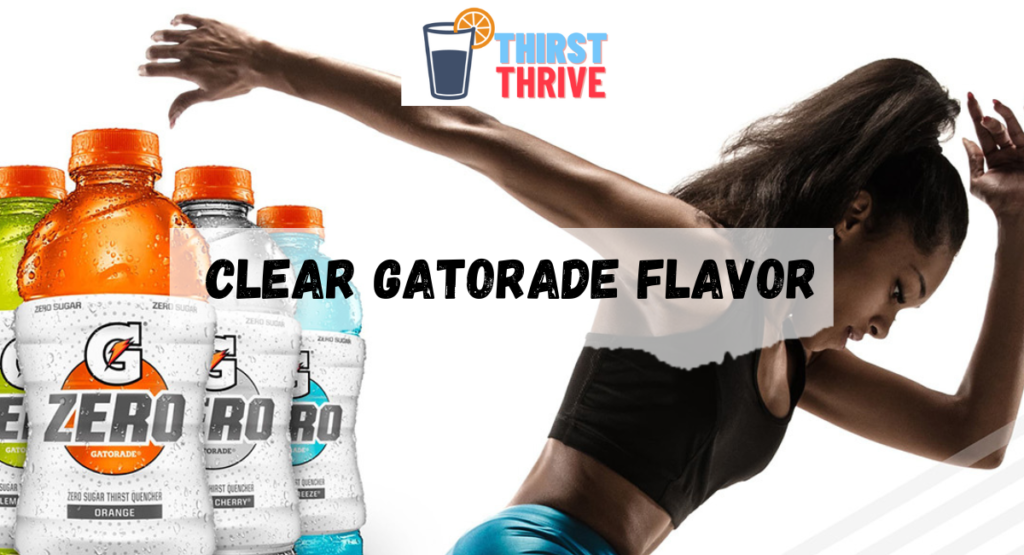Introduction
Sports and physical activity have been an integral clear gatorade part of human culture for centuries. Whether you’re a professional athlete or someone who enjoys a friendly game of tennis on the weekends, one thing remains constant – the importance of proper hydration. Staying hydrated is not only vital for overall health but is also a game-changer when it comes to athletic performance. In this article, we will explore the world of sports drinks, their benefits, and how they can optimize your performance on the field, court, or track.
Understanding the Importance of Hydration
Before delving into the specifics of sports drinks, it’s crucial to understand why hydration is essential during physical activities. The human body is composed of about 60% water, and every cell, tissue, and organ requires adequate hydration to function optimally.
When you engage in sports or intense physical activities, you lose fluids through sweat. This loss can lead to dehydration, which can have detrimental effects on your performance. Dehydration can cause fatigue, muscle cramps, dizziness, and even heatstroke in extreme cases. To prevent these issues, maintaining proper hydration levels is a top priority for athletes of all levels.
The Role of Sports Drinks
Sports drinks have become an integral part of an athlete’s toolkit. They are specifically formulated to provide the body with essential nutrients and electrolytes during physical exertion. Let’s break down the key components of sports drinks and how they can benefit athletes:
- Hydration: The primary purpose of sports drinks is to help athletes stay hydrated during exercise. They contain water to replace fluids lost through sweat, helping maintain the body’s fluid balance.
- Electrolytes: Sweat not only contains water but also essential electrolytes like sodium, potassium, and magnesium. Sports drinks typically contain these electrolytes, which are crucial for maintaining nerve function, muscle contraction, and fluid balance.
- Carbohydrates: Many sports drinks contain carbohydrates in the form of sugars (e.g., glucose, fructose, sucrose). Carbohydrates provide a quick source of energy, which can be beneficial during prolonged exercise when glycogen stores in the muscles start to deplete.
- Flavor and Palatability: The taste of sports drinks can encourage athletes to drink more fluids during exercise. This can be especially important for athletes who may not be inclined to drink plain water during intense workouts.
Types of Sports Drinks
Sports drinks come in various forms, each tailored to specific needs:
- Isotonic Drinks: These have a similar concentration of sugars and salts as the human body, making them quickly absorbed and ideal for maintaining hydration and energy levels during moderate-intensity activities.
- Hypertonic Drinks: These have a higher concentration of sugars and electrolytes than the human body. They are typically used after exercise to replenish energy stores and electrolytes but may not be suitable for immediate hydration.
- Hypotonic Drinks: These have a lower concentration of sugars and electrolytes than the body. They are designed to provide rapid hydration but may not provide as much energy as isotonic or hypertonic options.
When to Use Sports Drinks
The timing of sports drink consumption depends on the type of activity and its intensity https://www.hanstrek.com/:
- Before Exercise: Consuming an isotonic sports drink before a workout can help preload the body with fluids and energy, especially if you anticipate sweating heavily.
- During Exercise: For activities lasting longer than 60-90 minutes, sipping on an isotonic sports drink can help maintain hydration, energy levels, and electrolyte balance.
- After Exercise: To recover from intense exercise, consider consuming a hypertonic sports drink to refuel energy stores and replenish lost electrolytes.
It’s essential to listen to your body and assess your specific hydration needs. If you’re engaging in low-intensity activities or short workouts, plain water may be sufficient to stay hydrated.
Considerations and Alternatives
While sports drinks offer numerous benefits, there are some considerations to keep in mind:
- Caloric Content: Some sports drinks can be high in calories due to their sugar content. If weight management is a concern, choose lower-calorie options or dilute your sports drink with water.
- Individual Needs: Hydration needs vary from person to person. Factors such as body size, activity level, and environmental conditions (e.g., temperature and humidity) play a role in determining how much fluid you should consume.
- DIY Sports Drinks: If you prefer to avoid commercial sports drinks, you can make your own by mixing water, a pinch of salt, and a source of carbohydrates (e.g., honey or fruit juice). Experiment with ratios to find what works best for you.
- Natural Alternatives: Coconut water and watermelon juice are natural sources of electrolytes and can be used as alternatives to sports drinks.
Conclusion
Proper hydration is a cornerstone of athletic success. Sports drinks have proven to be valuable tools for athletes, helping them maintain hydration, energy levels, and electrolyte balance during and after exercise. However, it’s crucial to use them appropriately, considering factors like activity duration and intensity.
Remember that no single hydration strategy fits all. Personal preferences and individual needs should guide your choices. Whether you opt for commercial sports drinks or natural alternatives, the goal remains the same: to keep your body well-hydrated and primed for peak performance. So, the next time you hit the field or the gym, don’t forget the power of the right drink to fuel your victory.

